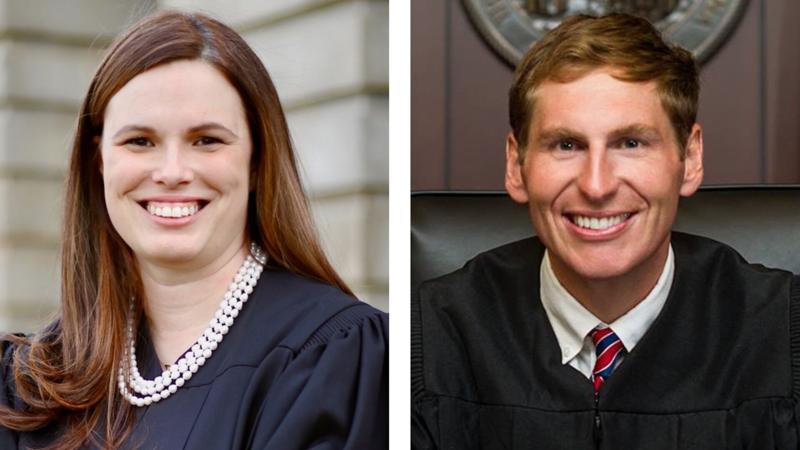Instructions for recalculating the nation’s last unresolved election from Nov. 5 will wait a little longer following Monday’s ruling from the North Carolina Supreme Court.
A temporary stay of the North Carolina Court of Appeals’ ruling on Friday was granted, fulfilling requests made by both the State Board of Elections and Democrat Allison Riggs. Her race with Republican Jefferson Griffin is for an eight-year term in Seat 6 of the state Supreme Court.
Letters signed by Supreme Court Justice Trey Allen were sent to counsel for the state board and Riggs, with notation that Riggs was recused from the bench decision. The court’s calendar for 2025 has begun and she remains seated pending the outcome of the election.
In a ruling announced Friday from oral arguments two weeks earlier, two of three judges at the state Court of Appeals found merit in Griffin’s litigation of the state board’s rejection of his protests. The appellate court sent instructions for recalculating the vote totals, a choice that would have taken at least another 15 business days and not necessarily guarantee either candidate a win or loss.
Griffin is a member of the appeals court and has not participated at any juncture when the disputed election litigation has landed in its courtroom.
On Election Night, with 2,658 precincts reporting, Griffin led Riggs by 9,851 votes of 5,540,090 cast. Provisional and absentee ballots that qualified were added to the totals since, swinging the race by 10,585 votes.
Riggs has been poised for a 734-vote win. Griffin protested about 65,000 ballots on multiple counts, and the state board rejected all of them. Most were by 3-2 party-line votes.
The protests the state board denied included registration records of voters, such as lack of providing either a driver’s license number or the last four digits of a Social Security number. State law for that has been in place two decades, dating to 2004.
Other ballots protested and denied by the state board included voters overseas who have never lived in the United States, and for lack of photo identification provided with military and overseas voters.
The Supreme Court bench has historically been nonpartisan and partisan, and since going back to the latter, was 6-1 Democrats in 2019. It is 5-2 Republicans today.







